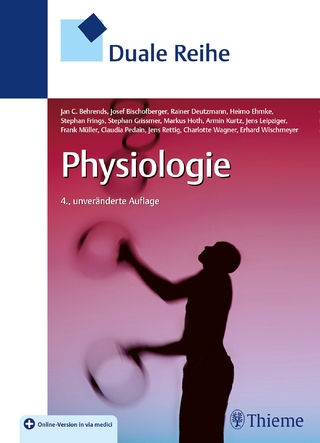
Neurological Modulation of Sleep
Academic Press Inc (Verlag)
978-0-12-816658-1 (ISBN)
Sleep disorders have become an increasing problem plaguing more than 70 million Americans according to the American Sleep Association. There is a clear association between sleep disorder and a wide range of other human disorders –performance deficiencies, psychiatric illnesses, heart disease, obesity and more – but in spite of this there is not yet a convenient overview on the market detailing the impact of obesity, age, diabetes and diet on sleep duration and attendant health outcomes.
Ronald Ross Watson, PhD, is Professor of Health Promotion Sciences at the University of Arizona, Mel and Enid Zuckerman College of Public Health. Dr. Watson began his research in public health at the Harvard School of Public Health as a Fellow in 1971 doing field work on vaccines in Saudi Arabia. He has done clinical studies in Colombia, Iran, Egypt, Saudi Arabia and the United States which provides a broad international view of public health. He has served in the military reserve hospital for 17 years with extensive training in medical responses to disasters as the chief biochemistry officer of a general hospital, retiring as a Lt. Colonel. He is a distinguished member of several national and international nutrition, immunology, and cancer societies. Dr. Watson’s career has involved studying many lifestyle aspects for their uses in health promotion. He has edited over 100 biomedical reference books and 450 papers and chapters. His teaching and research focuses on alcohol, tobacco, and drugs of abuse in heart function and disease in mouse models. Victor R. Preedy BSc, PhD, DSc, FRSB, FRSPH, FRSC, FRCPath graduated with an Honours Degree in Biology and Physiology with Pharmacology. After gaining his University of London PhD, he received his Membership of the Royal College of Pathologists. He was later awarded his second doctorate (DSc), for his contribution to protein metabolism in health and disease. He is Professor of Clinical Biochemistry (Hon) at King’s College Hospital and Emeritus Professor of Nutritional Biochemistry at King’s College London. He has Honorary Professorships at the University of Hull, and the University of Suffolk. Professor Preedy was the Founding Director and then long-term Director of the Genomics Centre at King’s College London from 2006 to 2020. Professor Preedy has been awarded fellowships of the Royal Society of Biology, the Royal College of Pathologists, the Royal Society for the Promotion of Health, the Royal Institute of Public Health, the Royal Society for Public Health, the Royal Society of Chemistry and the Royal Society of Medicine. He carried out research when attached to the National Heart Hospital (part of Imperial College London), The School of Pharmacy (now part of University College London) and the MRC Centre at Northwick Park Hospital. He has collaborated with international research groups in Finland, Japan, Australia, USA, and Germany. To his credit, Professor Preedy has published over 750 articles, which includes peer-reviewed manuscripts based on original research, abstracts and symposium presentations, reviews and edited books.
1. Diet, Age, and Sleep in Invertebrate Model Organisms 2. The Role of Sleep in the Control of Feeding Behavior 3. Diagnosis and Treatment of Shift Work Disorder 4. Normal Sleep and Its Neurophysiological Regulation 5. The 1-2-3s of Pediatric Sleep Disorders 6. Sleep Disturbances, Body Mass Index, and Eating Behavior 7. Neurocognitive Functions in Patients with Obstructive Sleep Apnea Hypopnea Syndrome 8. Adipose Tissue in Sleep Apnea: Effects of Hypoxia and Inflammation 9. Exercise, Diet, and Obese Adolescents: Association with Sleep Deprivation 10. Sleep and Hypoxemia in Adults 11. Obesity Hypoventilation Syndrome 12. Sleep, Sexual Function, and Testosterone 13. The Malignant Obesity Hypoventilation Syndrome 14. Obesity, Inflammation, and Obstructive Sleep Apnea: Exercise as Therapy 15. Obstructive Sleep Apnea in Normal-Weight and Obese Patients 16. Obstructive Sleep Apnea and the Metabolic Syndrome: Clinical Profiles and Relationships 17. Circadian Misalignment and Metabolic Consequences: Shiftwork and Altered Meal Times 18. Role of Sympathetic Nervous System in the Metabolic Syndrome and Sleep Apnea 19. Obstructive Sleep Apnea and the Metabolic Syndrome: Pathophysiological and Clinical Evidence 20. Sleep Deprivation and Metabolic Syndrome 21. Excessive Daytime Sleepiness: Age, Sleep, Mood, and Metabolic Modulation 22. The Metabolic Role of Saturated and Monounsaturated Dietary Fatty Acids: Their Contribution to Obesity, Brain Activity, and Sleep Behavior 23. Obstructive Sleep Apnea and Diabetic Microvascular Complications 24. Obstructive Sleep Apnea Increases Hemoglobin A1c Levels: Mechanisms and Consequences 25. Restless Legs Syndrome (Willis–Ekbom Disease) and Gastrointestinal Diseases 26. Relationship between Circadian Rhythms, Feeding, and Obesity 27. The Effects of Nutrition on Sleep and Sleep Complaints among Elderly Persons 28. Fragmented Sleep and Memory Consolidation 29. Sleepiness at the Wheel and Countermeasures: Effects of Caffeine, Napping, and Blue Light 30. Sleep Deprivation and Behavioral Risk-Taking 31. Relation between Magnesium Deficiency and Sleep Disorders and Associated Pathological Changes 32. Physical Activity and Sedentary Time in Sleep Apnea and Obesity 33. Oxidative Stress in Sleep Apnea 34. Sleep in Fetal Alcohol Spectrum Disorders 35. Adenosine and Glutamate in Neuroglial Interaction: Implications for Sleep Disorders and Alcoholism 36. Sleep Quality and Risk of Alcohol Misuse 37. Sleep and Addictions: Linking Sleep Regulation with the Genesis of Addictive Behavior 38. Alcohol and Sleep-Disordered Breathing 39. Patterns of Alcohol Consumption and Sleep in Shiftworkers 40. The Impact of Bariatric Surgery on Obstructive Sleep Apnea 41. Preoperative, Perioperative, and Postoperative Considerations in the Bariatric Surgery Patient with Sleep Apnea
| Erscheinungsdatum | 20.01.2020 |
|---|---|
| Verlagsort | San Diego |
| Sprache | englisch |
| Maße | 216 x 276 mm |
| Gewicht | 1160 g |
| Themenwelt | Studium ► 1. Studienabschnitt (Vorklinik) ► Physiologie |
| Naturwissenschaften ► Biologie ► Humanbiologie | |
| Naturwissenschaften ► Biologie ► Zoologie | |
| ISBN-10 | 0-12-816658-4 / 0128166584 |
| ISBN-13 | 978-0-12-816658-1 / 9780128166581 |
| Zustand | Neuware |
| Haben Sie eine Frage zum Produkt? |
aus dem Bereich


